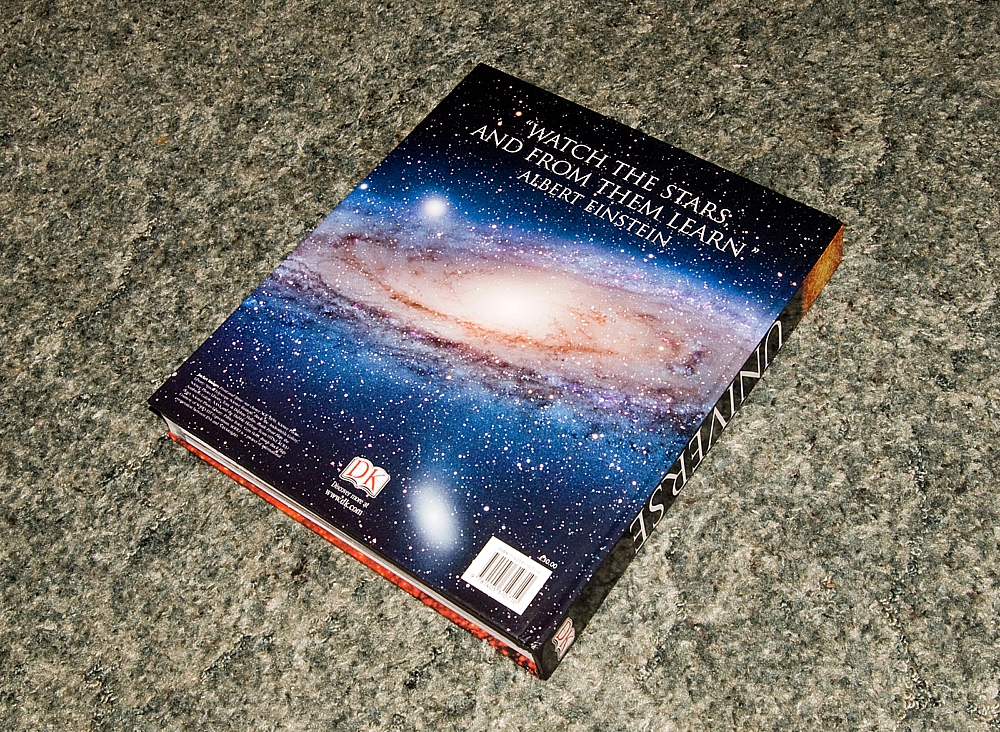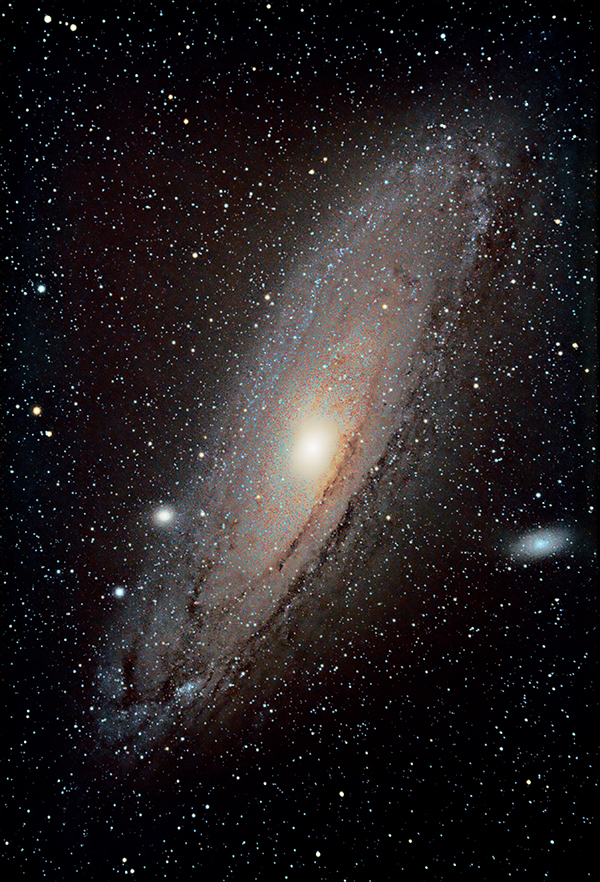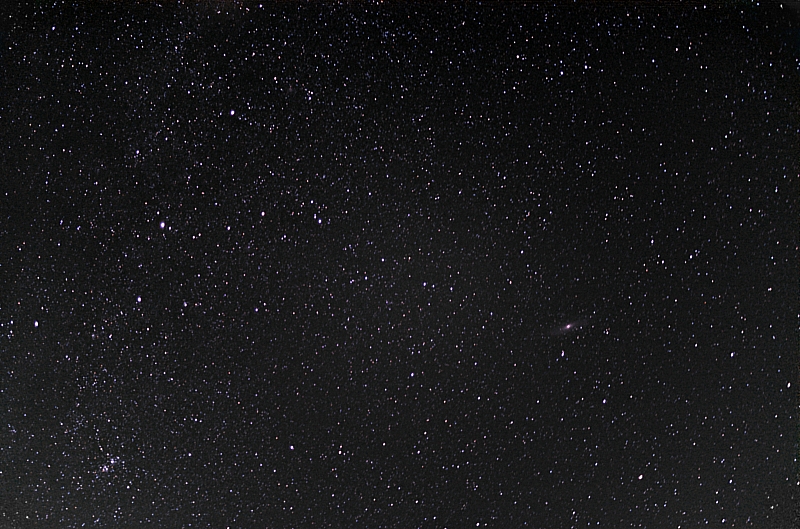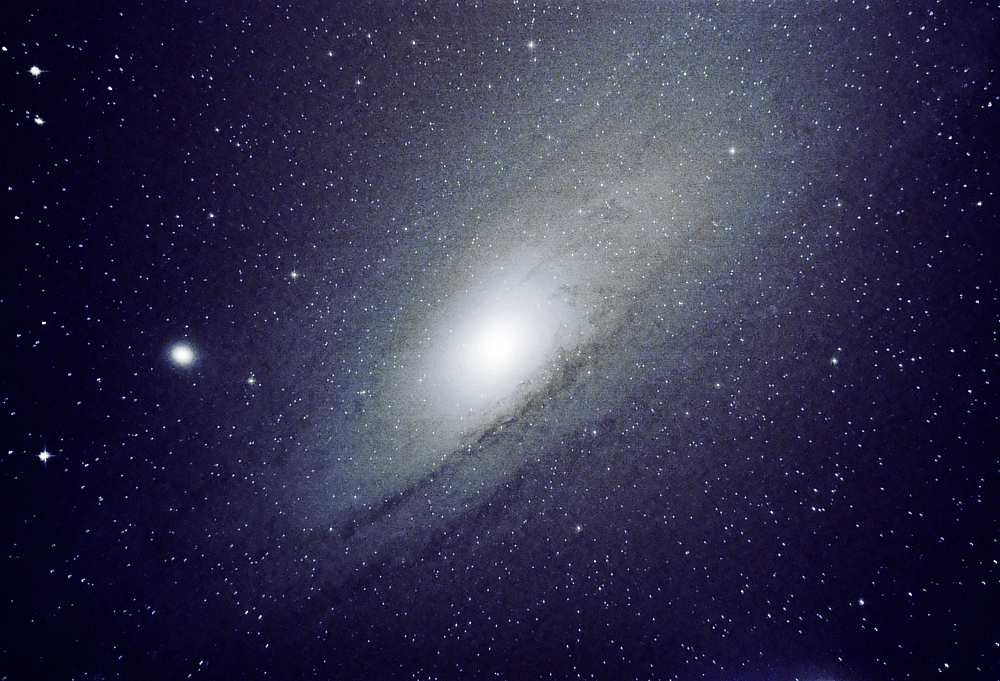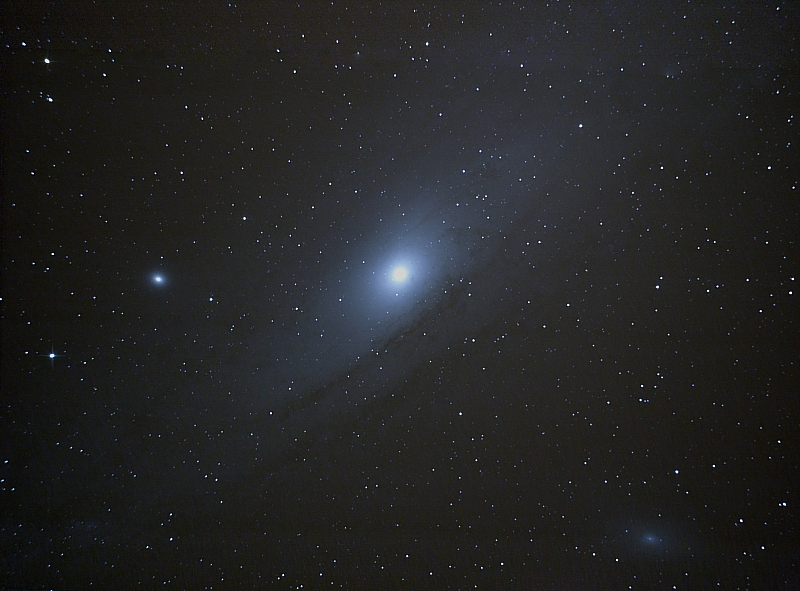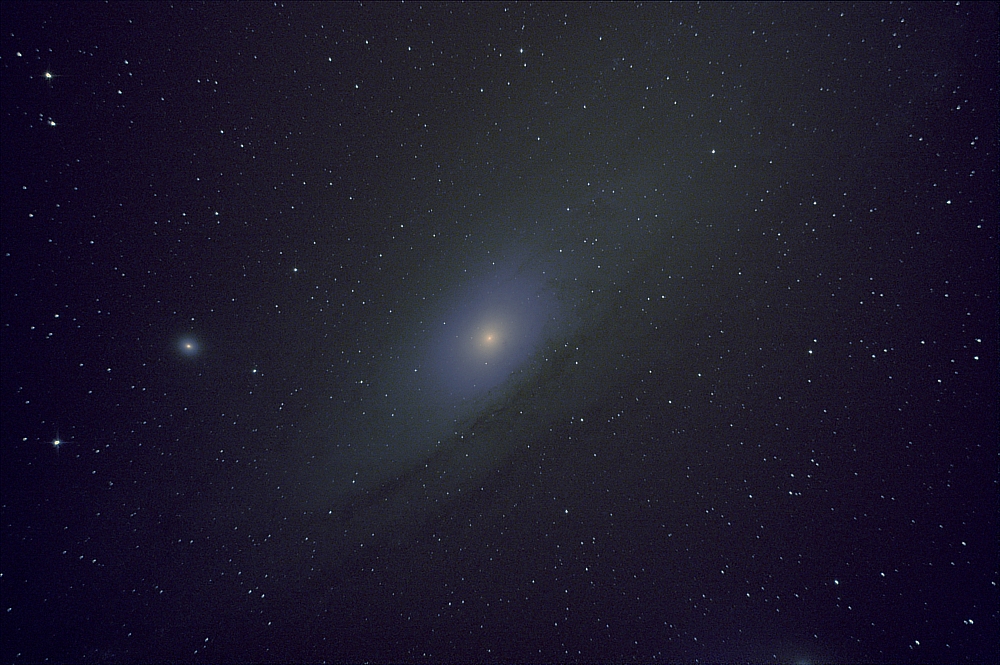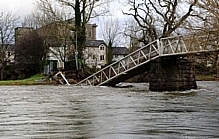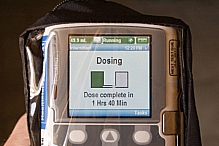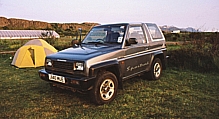After what seems to be many weeks of overcast skies, Friday evening was clear enough to get out and test the new focuser setup. After a delayed start due to a mucky secondary mirror, the scope was recollimated and set up in the back yard. I did a few visual checks of random bright stars to confirm that all was OK, then decided that it was time to grab a few images for analysis later.
I slewed the scope around to the faint blur that is the Andromeda Galaxy (Messier 31), then slapped on the D50 for some prime-focus shots. This was to be my first semi-serious foray into taking this sort of shot, and I just wanted to get a few images to stack and play with, nothing too difficult.
Anyway, focusing was a lot better with the new setup. After transferring a few shots from the SD-card to the laptop to confirm image acceptability, I rattled off a series of raw files (NEFs), all at 30s, just to see what could be achieved at such relatively short exposures.
After a quick look around to see a few double-stars, the dreaded dew started to form and it was time to pack away and start photo-processing.
The individual frames didn't seem too bad - focus was just a tad out on the later pics, it looks like there was some minor focus-drift over time. The stars at the corners of the pics are distorted due to coma (typical of Newtonian optics - correctable with optical hardware, at a price) but the central stars are hardly trailed at all, which means that the initial polar-alignment of the mount was either very good, or just plain lucky!
Anyway, I plugged them all into various bits of software and , much later on, it spat out the following pic. There's a definite hint of spiral structure there, and the centre's not burned-out too much due to over-exposure or drastic levels/curves adjustments. Not bad for a first attempt with a basic set of frames, and I reckon I could drag more detail out of the data, given enough time. That said, I'm quite chuffed with it as it is at this stage in the processing.
Next time I'll go for much longer exposures, and more of them.
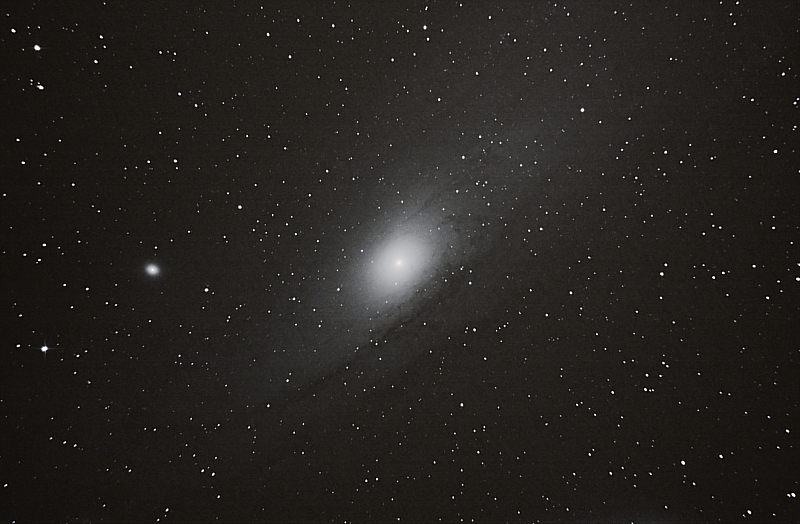
Andromeda Galaxy (M31).
(Nikon D50 at prime-focus on C8-N, ISO 200, no filters, 22 x 30s colour exposures + 1 dark frame stacked with DSS, processed in PS CS3)
